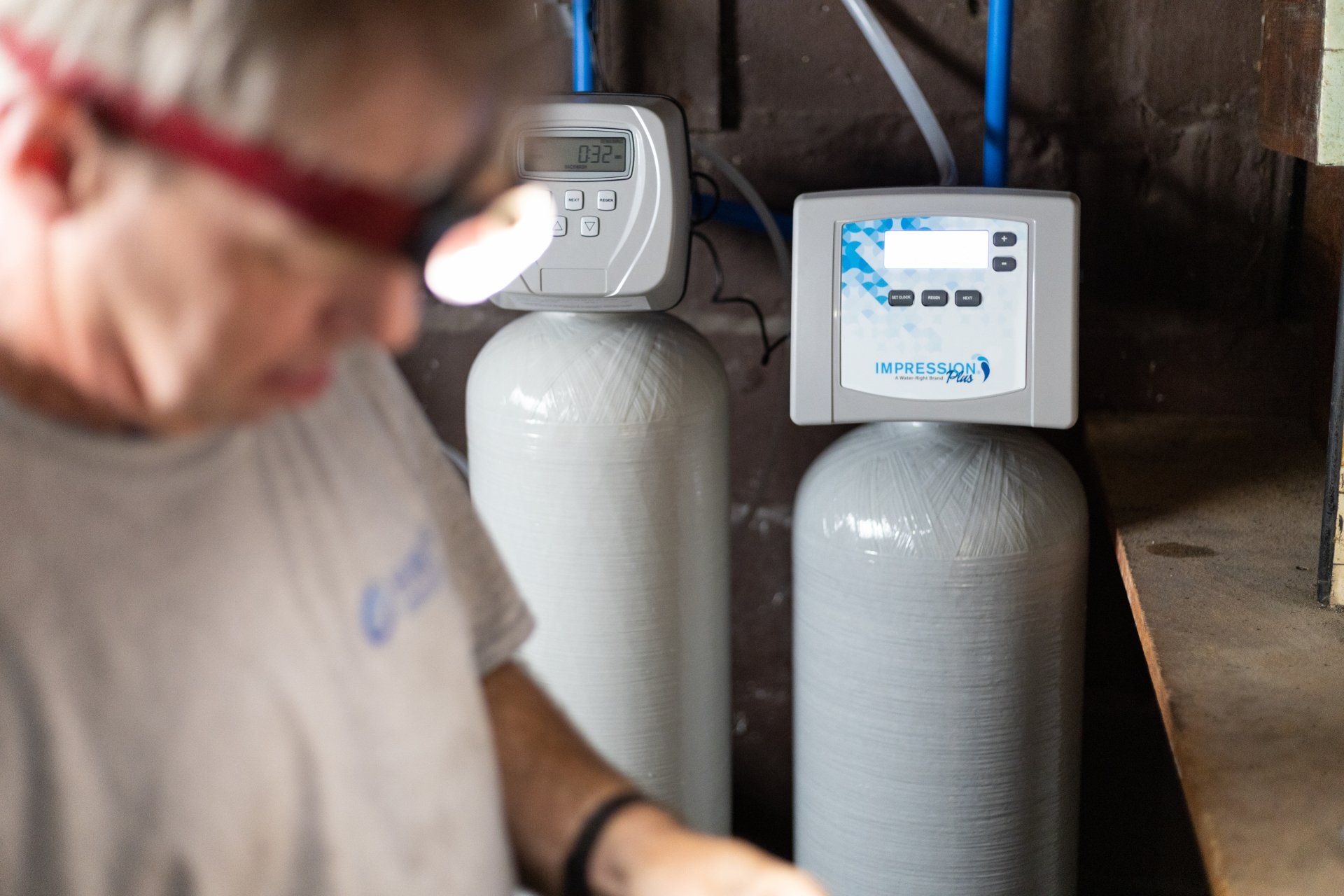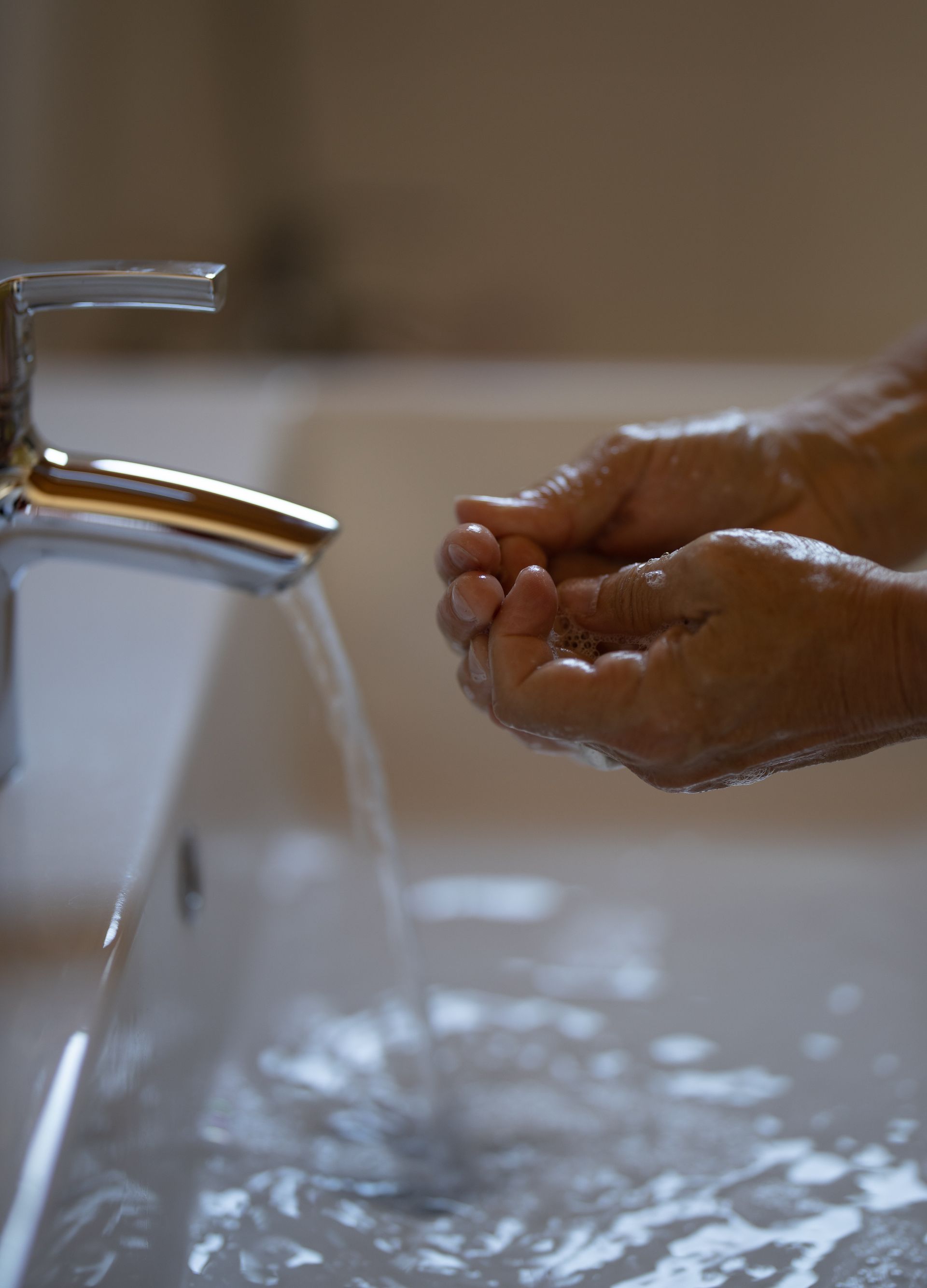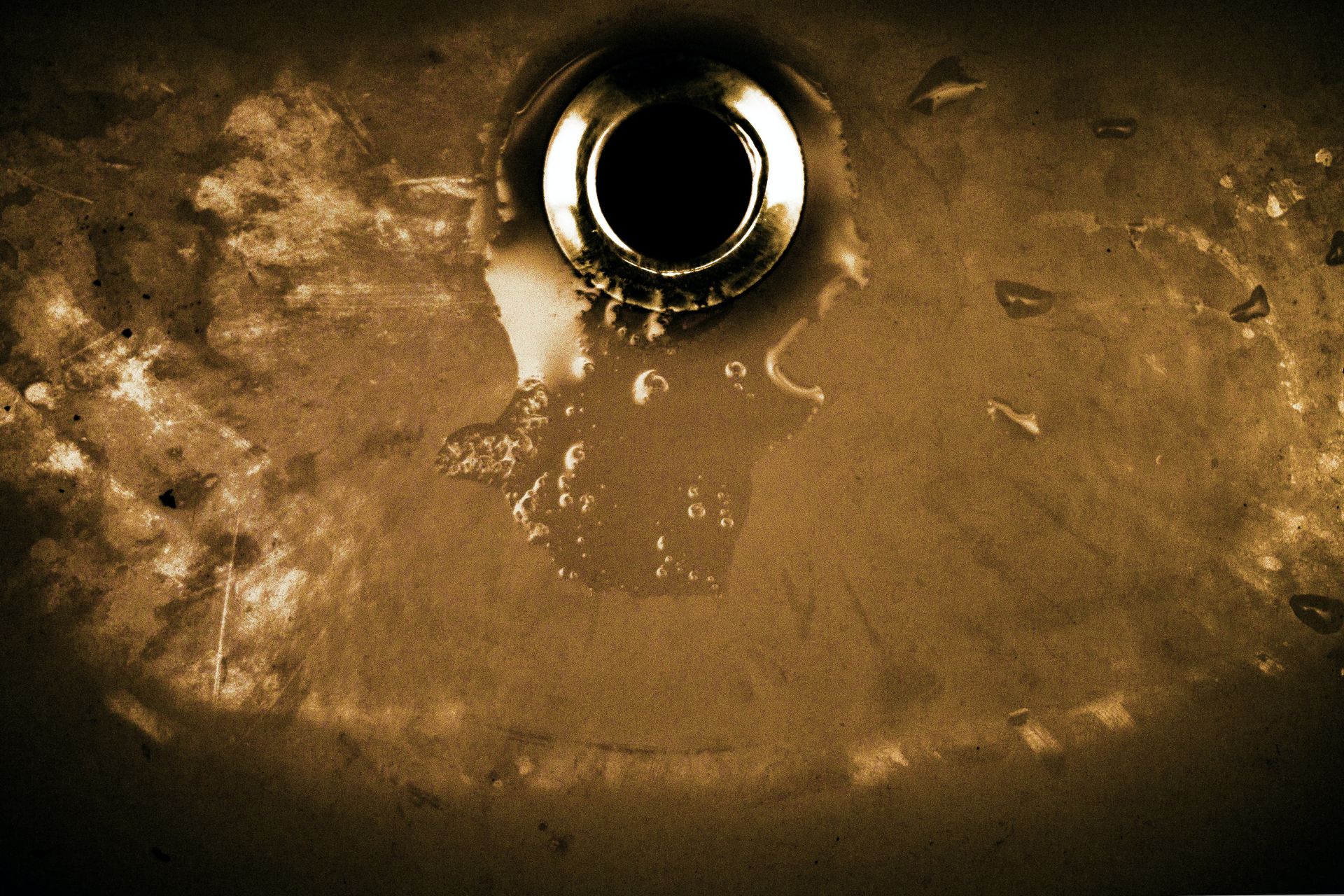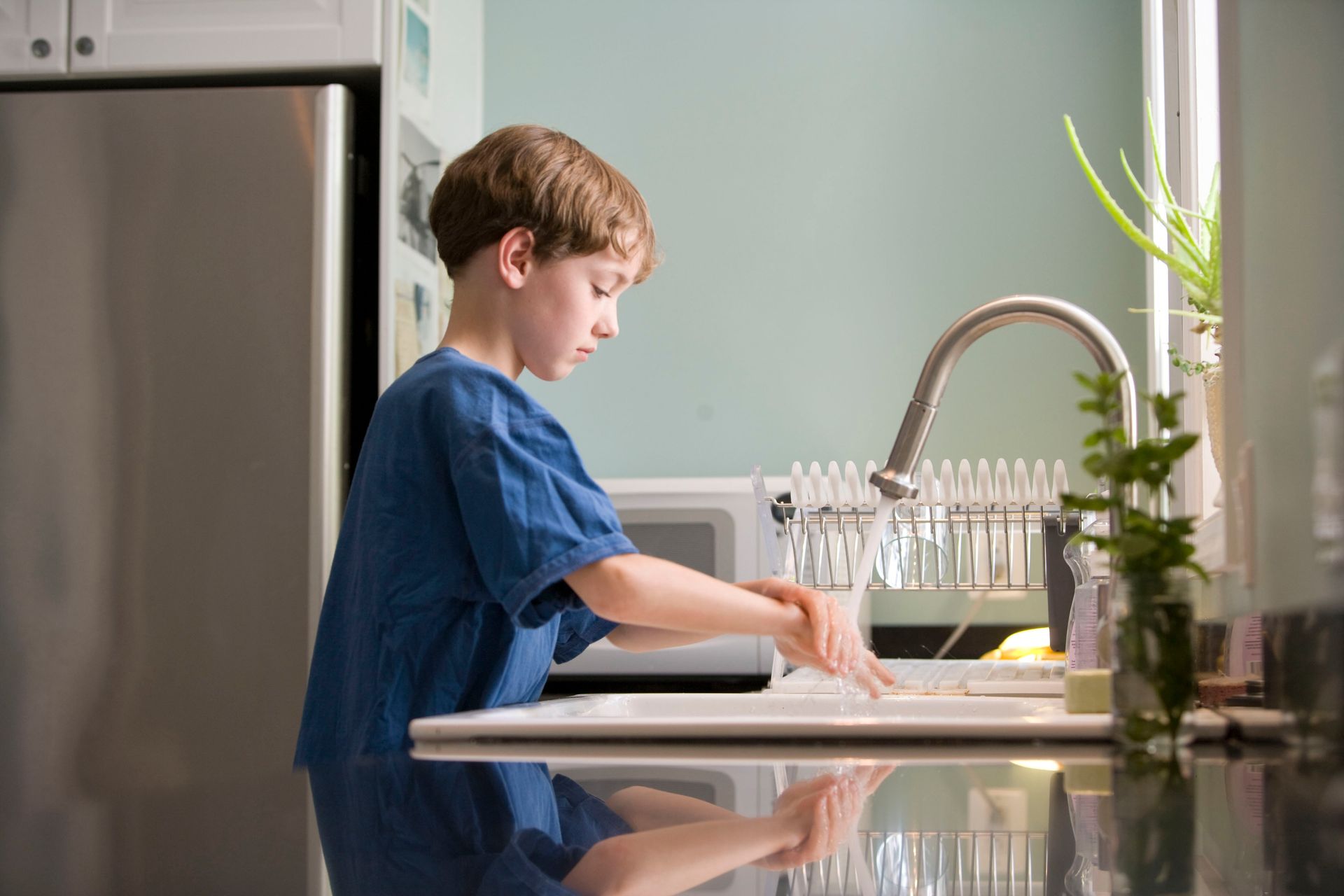Hard Water
Hardness can be a serious nuisance for home owners, wreaking havoc on their skin, making their cleaning products less effective and doing damage to their pipes and appliances.
The Problems That Stem From Hard Water
Hard water is not exactly dangerous in the way other contaminants, bacteria and man-made chemicals are, but does have a way of creating various related problems for your home and general health. Hard water affects everything it touches, and can be detrimental to things like cleaning supplies, fixtures, appliances and more.
General guidelines for classification of water hardness are: 0 to 60 mg/L (milligrams per liter) as calcium carbonate is classified as soft; 61 to 120 mg/L as moderately hard; 121 to 180 mg/L as hard; and more than 180 mg/L as very hard.
Softer water creates more suds with cleaning products, making them more effective, and requiring less per use. Soft water also does not create the same mineral buildup in appliances that hard water does.
Home and Appliances:
Hygiene and Health:
The Solution to Hard Water: Water Softener
The system we generally recommend for hard water is the Water Right Impression Plus series water softener. These systems use ionized beads and salts to remove the minerals and solids that cause hard water. These units can be installed directly into your home's water, delivering soft water to every faucet and appliance in your home.
As residential installers in New York and Pennsylvania, we've become experts at water testing and softener installations. Water conditions here in the Great Lakes area are not as hard as some parts of the country, but we do see pockets in more rural areas of exceptionally high calcium carbonate volumes.
If you're interested in a free water test or treatment system recommendation, consider reaching out to us today. We offer free in-home testing and quotes for homeowners.






